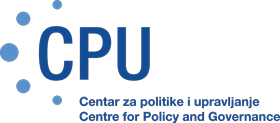
This Wednesday, June 12, CPU representatives, Haris Abaspahić, policy lead, and Azra Bećirovć, external CPU associate, participated in the “Innovative approaches to critical raw materials management in the Western Balkans: Opportunities for economic growth and environmental sustainability” panel, held on the region-wide energy summit in North Macedonia, organized by the ZIP Institute and EU Delegation to North Macedonia and supported by the Open Society Foundation for Western Balkans. The event was focused on two main discussion topics, namely economic growth and environmental sustainability within the global energy transition context.
The Western Balkans - A Region Rich with Natural Resources
The expected growth of the critical raw materials demand, such as the demand for lithium, cobalt and nickel caused by the transition toward greener technologies and supply chains, will change the way countries all around the world, as well as the region, treat their economic potential in the future. In response to these growing needs, the EU passed the Critical Raw Materials Act, created to ensure sustainable and reliable availability of essential resources critical to Europe’s industrial sectors.
The region has the potential to gain considerable benefits from integrating into the EU industrial chains, a step that the recently adopted EU Growth Plan for the Western Balkans has endorsed. This strategic plan boosts the development of industries such as raw materials and batteries, with the goal of strengthening economic and green industrial development, together with efforts to ensure transparency, accountability and good governance practices regarding critical raw materials.
On the other hand, the conclusion made at the conference points to finding the balance between the fast-paced global development, sustainable and responsible use of raw materials, opening the region’s green industrial growth, local and social benefits as well as environmental conservation.
During the panel debate, experts from diverse fields shared their thoughts: Robert Tomas from the European Commission, Peter Tom Jones from the KU Leuven Institute for Sustainable Metals and Minerals, as well as other eminent figures from the Western Balkans and Turkey.
Haris Abaspahić, policy lead at the Centre for Policy and Governance in Bosnia and Herzegovina, emphasized the need for coordinated policy efforts and strategic risks. On the other hand, Azra Bećirović, a lecturer at the University of Sarajevo’s School of Science and Technology and an external CPU consultant, provided a comprehensive overview of the opportunities and challenges in managing critical raw materials in the Western Balkans.

